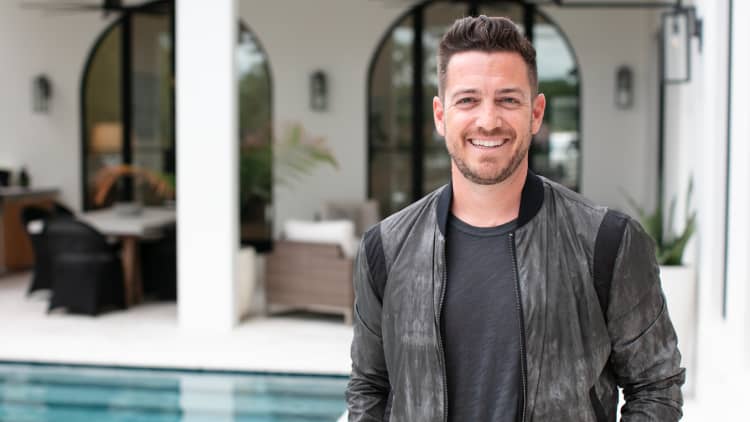Three years ago, I paid off two home mortgages: our primary residence and a three-bedroom house that my wife and I rented out for $1,500 a month.
I felt like I was on the right financial track. I was officially debt-free, and also ran a successful music blog and business coaching service — both brought in a combined annual income of $1 million. Before that, my family and I had been living off food stamps.
But now, at 39, I actually regret paying off my two mortgages. Just a year after we paid off the mortgages, my wife and I enrolled our daughters in a school that was an hour away from our Tampa, Florida home.
Moving closer would have been ideal, but the majority of our money was already tied up in real estate. Our options were limited and I felt trapped.
But the experience taught me several important lessons:
1. Have your own money philosophy.
I didn't grow up learning a lot about money, but I knew I needed to get my finances in order after I got married at 22. So I turned to self-help books and experts for guidance.
Having watched family and friends struggle with debt my entire life, I was pulled into the camp of money advice that advocated for zero debt, even mortgage debt.
But different people have different situations. Eliminating my bad debt but maintaining lots of liquidity would have given me the most financial flexibility.
After months of struggling with banks, I was able to refinance one house and buy a new one closer to my daughters' school. But this time around, I followed my own money philosophy.
I only put 50% down on my new house after selling my old one, and invested the remaining 50% of the new house's value into an index fund.
2. It's okay to get emotional about money.
Money can be a cause of stress and hardship, and it's okay in some cases to let your emotions play a role in your decisions.
I assumed that having a paid-off house would relieve my stress. As it turned out, a paid-for house with little access to money ruined my sleep. I needed to develop a more practical approach to my mortgage debt.
My investment of 50% of my house's value into an index fund wasn't just an attempt to build wealth; it was primarily for peace of mind that I'd be able to access my money in case of an emergency or a major life change.
If you're about to make a big financial decision, do a "sleep test." In any given financial situation, ask yourself, "Which choice will help me sleep better at night?"
3. Your money goals should be constantly evolving.
While I still believe that getting rid of mortgage debt can be a fantastic goal, it took me a while to admit that my goals were changing.
At first, I was just worried about making enough money to support my family. Then I was concerned with becoming debt-free and used all of my business profits to pay off debt.
But now, with an income of $1.6 million a year, keeping my money easily accessible and building wealth are more central goals. I also strive to be more giving: My goal is to donate 50% of my profits to my church and causes I believe in.
What is one goal you could focus on that would help all your other goals become more achievable in the future? Is it paying off debt? Increasing your income? Starting an investment account?
There's no right answer — just one that motivates you to take action.
Graham Cochrane is founder of The Recording Revolution and author of "How to Get Paid for What You Know." He has helped more than 3,000 people launch and improve their own businesses. Follow him on Instagram and Twitter.
Don't miss:



